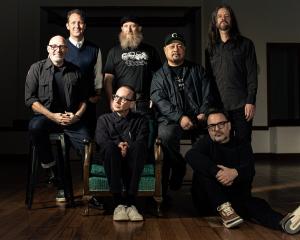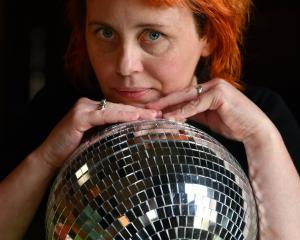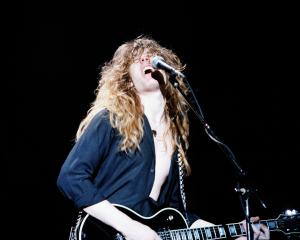After all these years, the boys from Bachman Turner Overdrive are taking care of business, Tom McKinlay reports.
Hard-rocking Canadian Randy Bachman is on the phone from Toronto.
That's pronounced ''back-man'' he confirms, not ''Bach-man'' as he gets in the US, where the first part of the name is given the German-composer treatment. It's different again in Germany, he says, where they follow something closer to the US habit, but give it a bit more Teutonic steel: ''Bachman, Bachman,'' Bachman chants, giving each syllable equal emphasis. Those German crowds must be quite something.
Bachman has played to them all, in a career that stretches back into the early '60s, back even before he formed the group that has carried his name - his name and the name of Fred Turner - these past four or five decades. Now the two men who formed the heart of Bachman Turner Overdrive are coming to New Zealand, in February, for a tour with Pat Benatar and classic rockers America.
''I understand downunder we have a good dozen or so gold and platinum records waiting for us, which they do not send to you,'' Bachman says, putting local record executives on notice. Time to check some of those dusty cupboards, boys.
''These are way back from the '70s, they probably don't exist now,'' he adds, letting them off the hook.
Bachman Turner Overdrive (BTO) - which included several members of the Bachman clan in its original guise - hammered a dent in the Kiwi charts back in the day. Songs such as Let It Ride, You Ain't Seen Nothing Yet and Takin Care of Business thumped their way up the charts then and continue to get airplay now if you are on the right part of the radio dial.
Earlier still, Bachman tasted success with The Guess Who, whose tune American Woman hit No 1 on the US Billboard charts in 1970, a first for a Canadian band.
The guitarist left that line-up shortly after, hooking up with Turner. Fellow Canadian Neil Young helped them score a record deal but their early country-rock efforts were ''blase'', says Bachman, in matter-of-fact fashion. Country-rock was ''kind of over''. It was time for a change and Turner's ''heavy, heavy voice'' provided the key.
''He always sang as a kid, I remember, House of the Rising Sun, the way Eric Burdon and The Animals did it. He had this big Eric Burdon kind of voice, so we switched from playing country-rock more to like Creedence Clearwater rock, then we started to write our own and had a really nice string of hits,'' Bachman says, friendly and earnest down the phone line in a very Canadian way.
''We were pretty much meat and potatoes, blue-collar rock'n'roll and somehow at that time it worked really well.''
There were no gimmicks. They couldn't afford any.
''We weren't skinny, we didn't wear girls' tights or make-up, we were the guys next door who mowed your lawn or took out your garbage, that kind of thing.''
In fact, so rugged were these rockers from Canada that the German press decided they must have been loggers who just happened to stumble into rock'n'roll.
''We just let it roll, because in Germany and Denmark and Sweden they loved the big Viking kind of look and that's what we looked like. We were big guys.''
That's not so much the case these days for Bachman and Turner.
''In the last year I've lost 140 pounds and so has he,'' Bachman says. They eat well and exercise. And play music.
Music has been Bachman's life, starting with the violin at age five.
''I played classical violin until I was about 13. Absolutely hated it because it was real British Royal Conservatory of Music, that kind of Chopin, Tchaikovsky kind of stuff. Then I saw Elvis Presley on TV and said, 'What is that?', and 'Why is everybody going crazy?'. They said, 'That's a new thing called rock'n'roll'. Well, what is that music? They said 'Well, you do whatever you want, here's three chords, you can play them any way you want and scream and yell and everybody loves it'. I love this.''
So Bachman learned to move like Elvis, then the Beatles, then Hendrix.
''When I am on stage, I still do John Lennon at the mike. When I sing on the mike I bounce up and down just like John Lennon.''
That's for the same reason Lennon did it, he says. To keep the drummer in time. His brother Robbie, BTO's original stick-man, tended to speed up, just like Ringo.
Beyond Turner's big gruff voice, the other impetus for BTO's move into the heavy lane was pragmatic. They needed to get some radio airplay to get gigs, and what was increasingly spinning the turntables was the heavier sounds of Creedence Clearwater and '70s Stones, Bachman says.
BTO got in on the act, joining the likes of Peter Frampton, Lynryd Skynryd and the Doobie Brothers, belting out rockers with catchy choruses.
If that sounds just a tad calculating, it's hard to hold it against the man. Bachman talks about rock'n'roll with a genuine Jack Black School of Rock enthusiasm.
''We played because we like it. It was not for love, or sex, or drugs, it was for rock'n'roll. We just had a dream of being a rock band. Even if we had a bad gig and the guy stiffed us and we never got paid afterwards, we still enjoyed it. And that was the most important thing. Everything I've done, every flat tyre, every blizzard I have driven through, every snowstorm, every cancelled airplane flight ... it's always been fun.''
There were plenty of miles of tarmac back then for the hard-working blue-collar rockers, but that had its advantages too. More than a few of those catchy BTO lyrics came straight from the street.
''Most of my song lyrics I have heard other people say,'' Bachman says.
''I heard a trucker say 'Let it ride'. I went to Fred Turner and asked 'What does that mean?'. This was 1972, this was BTO's first hit.
''Later I heard someone else say, 'Taking care of business', 'Let's take care of business'. I went, 'Wow, if people are saying that on the street and I make a song with that title, it's bound to be a hit'.
''And I heard someone else say, 'You ain't seen nothing yet', I've heard other people say 'Hey, you' and I wrote Hey You. I've heard people say 'Lookin' out for number one'.
''Every song title I have got from things people have said, either live or on the TV or on the radio.
''I write these things down all the time.''
Bachman modestly deflects the suggestion he has a talent for picking up on winning words.
''I need a little catch phrase that I can fit around a guitar hook or riff and then suddenly the whole thing flows out of me,'' he says.
So that was then. What about now? What's the state of rock'n'roll in the new millennium?''I think it's on the upswing. I think there's a majority or a growing majority out there who are quite sick of the rap and the hip-hop and the singing to tracks and all the dancers and all that s . . . They just want rock'n'roll guys.''
Bachman nominates Canadian rockers the Sheepdogs and Californian band the Rival Sons as examples of the ''new old school''.
''Kids are going back to rock'n'roll. The guys playing on stage, breaking strings, making mistakes, singing wrong lyrics, showing the human side of rock'n'roll. Because rock'n'roll is not machines, it's a bunch of guys who can hardly play, playing their hearts out and calling it blues and putting a beat behind it and calling it rock'n'roll.''
The two of them, Bachman and Turner have been back together for a couple of years, after a break of more than two decades. BTO played on over the years with various line-ups, but has not for the most part included the two headliners at the same time.
Although there's no ''overdrive'' in the band name now, just Bachman Turner, and the other band members are not originals, Bachman says the boogie they will bring to New Zealand is in good shape.
''We got to our first rehearsal and it was like, 'What shall we do?' I said, 'Here we go'. And I started to play the little guitar intro to Let It Ride and when he started 'You can't see the mornin', but I can see the light','' Bachman says in his best Fred Turner voice.
''I just looked at the band and we both smiled. And it was right there.''
Catch them
• Saturday, February 16: The Amphitheatre, Taupo
• Sunday, February 17: Matakana Country Park, Matakana, North Auckland
• Saturday, February 23: Gibbston Valley Winery, Queenstown












